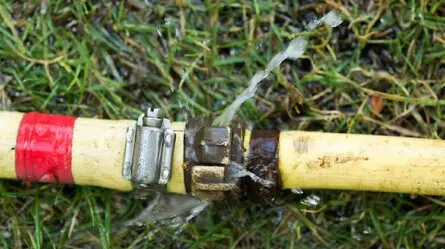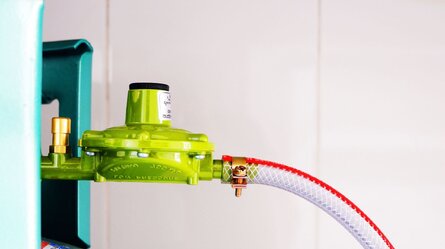Gas leaks pose a significant risk to our homes, personal safety, and environment. The potential hazards range from fire and explosions to carbon monoxide poisoning. So, we must equip ourselves with the knowledge and understanding to identify, respond to, and prevent gas leaks effectively.
In this comprehensive guide, you will find expert advice, detailed instructions, and practical tips to help you confidently handle a gas leak situation in your home. From recognising the signs and symptoms of a gas leak to implementing essential safety measures and understanding the criticality of seeking professional assistance, you can trust that we will provide comprehensive guidance at every step.
With this knowledge, you’ll be ready to care for your well-being, keep your loved ones safe, and ensure your home stays secure.
Identifying A Gas Leak: Signs And Symptoms
Gas leaks are serious and can endanger both your home and your health. Recognising the signs and symptoms of a gas leak is essential for taking quick action to ensure everyone’s safety. Spotting these indicators early allows you to effectively protect yourself and your loved ones from potential risks.
Rotten Egg Odour
A distinctive rotten egg odour is one of the most common signs of a gas leak. Natural gas suppliers add a chemical called mercaptan to the gas, which gives it this distinct smell. If you detect this odour in your home, it strongly indicates a gas leak.
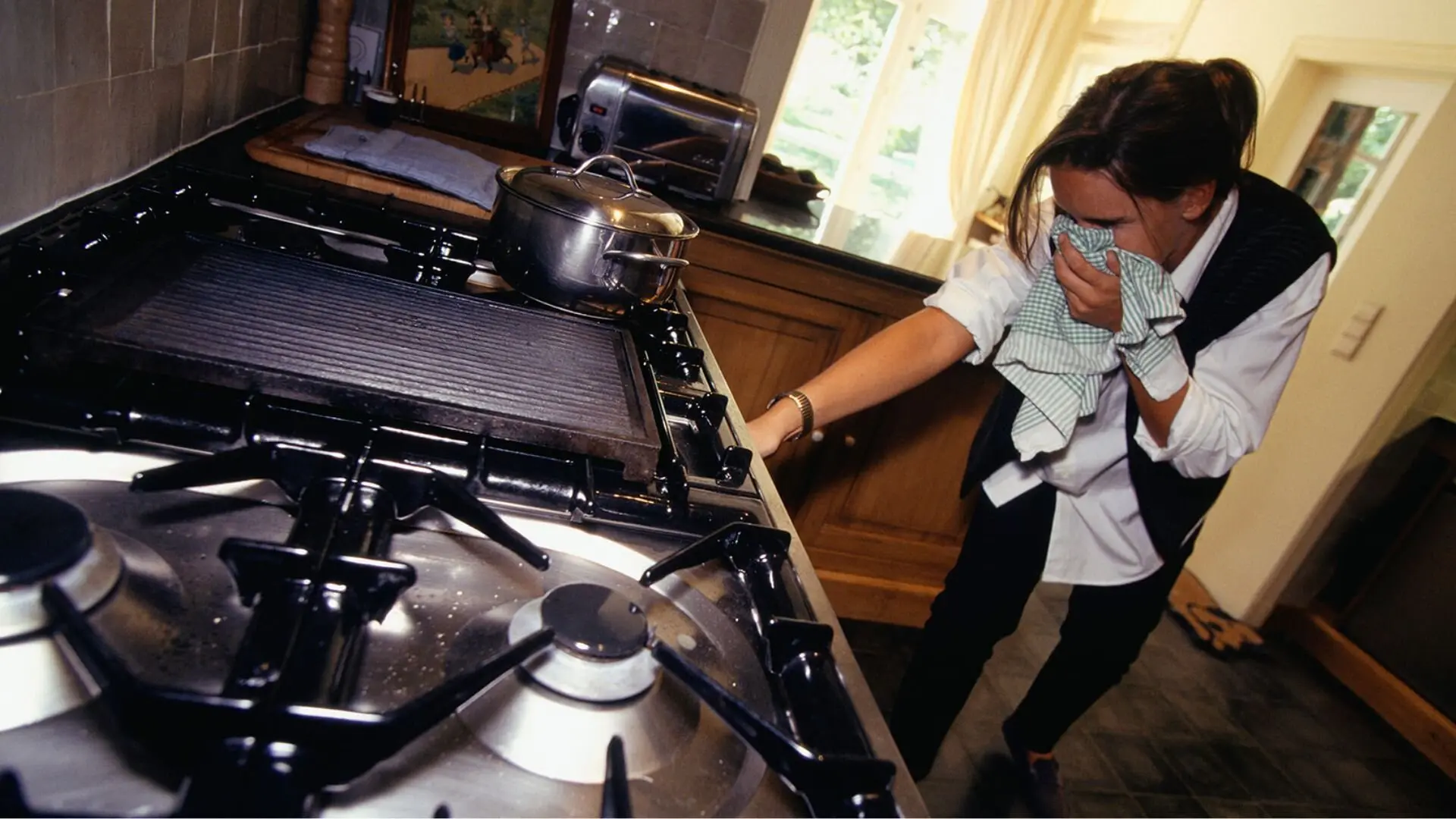
Hissing Or Whistling Sounds
Notice unusual hissing or whistling sounds near your pipes, appliances, or meters. These sounds can indicate a gas leak and should be taken seriously. If you notice such noises, it is essential to investigate further and take appropriate action.
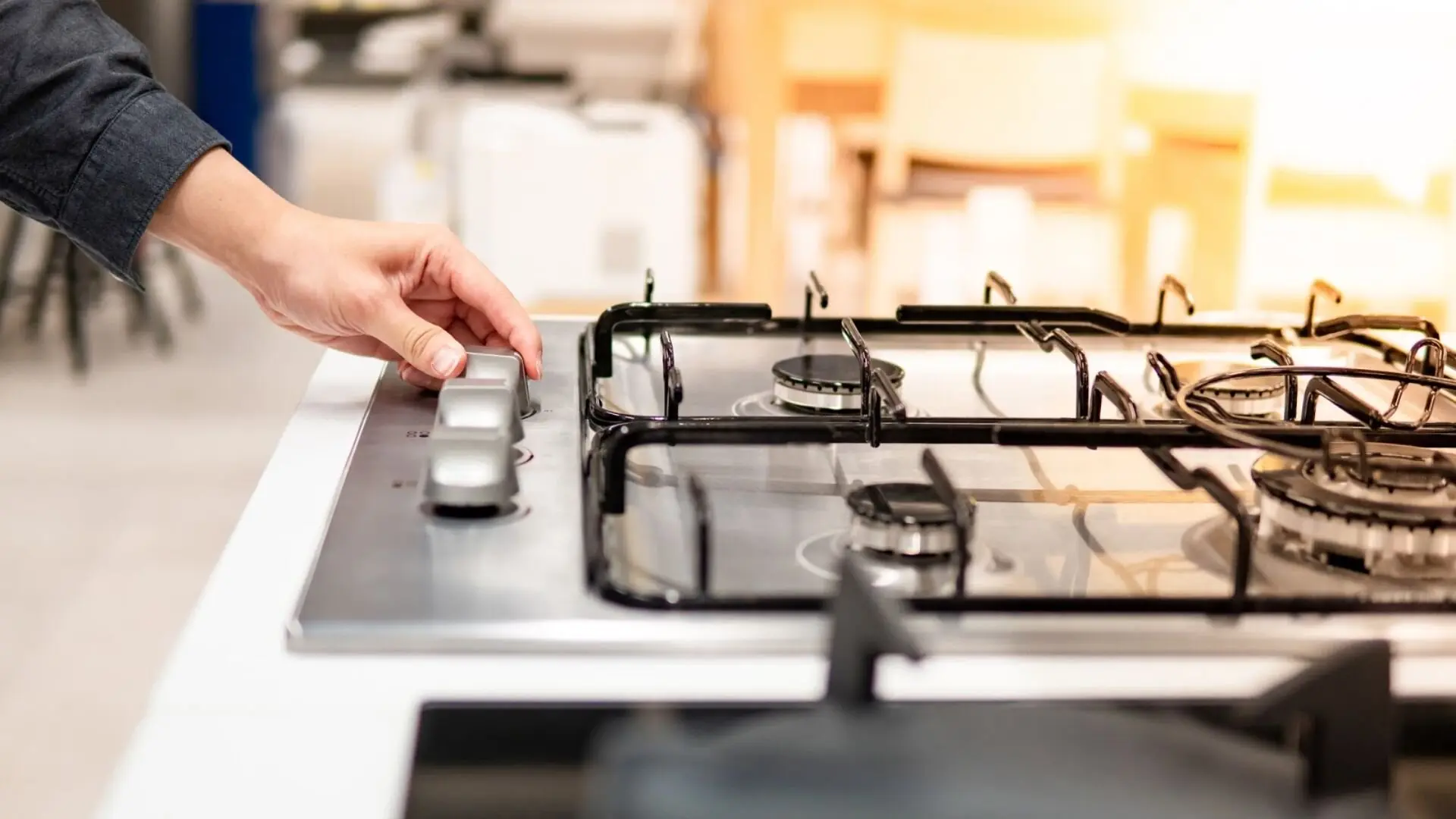
Dead Or Dying Vegetation
Gas leaks can affect nearby plants and vegetation. Observing dead or dying vegetation in your yard, especially in areas close to gas lines or appliances, could indicate a gas leak underground. This visual clue should prompt you to investigate further and seek professional assistance.

Physical Symptoms
Gas leaks can also cause physical symptoms in individuals exposed to them. These symptoms may include dizziness, nausea, headaches, fatigue, difficulty breathing, or eye and throat irritation. If you or anyone in your household experiences any of these symptoms without any other apparent cause, it is essential to consider the possibility of a gas leak.

It is important to note that some gas leaks may not exhibit any noticeable signs or symptoms. This is why it is crucial to have proper gas leak detection systems installed in your home, such as gas detectors or alarms, to provide an extra layer of protection.
Suspecting A Gas Leak: Essential Steps To Take
If you think there might be a gas leak in your home, it’s crucial to act immediately to keep everyone safe. Gas leaks can cause serious issues like fires, explosions, or health problems. Following a few vital steps can reduce risks and ensure your family’s safety.
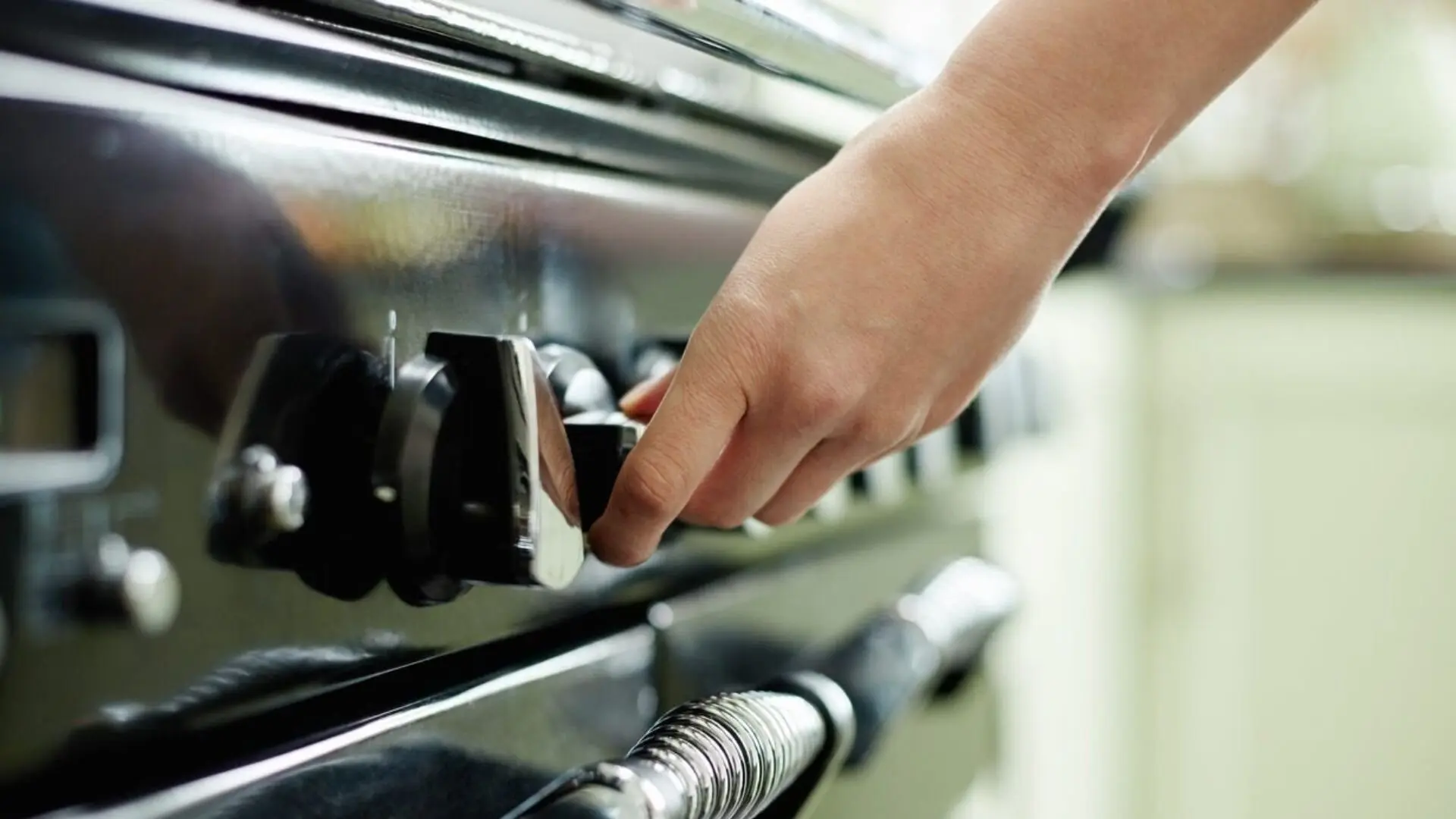
Step 1: Leave Your Property
If you suspect a gas leak, you must get out of the house immediately. Quickly make sure everyone leaves, and leave the doors open so the gas can escape, cutting down the chances of a fire.
Step 2: Prevent Any Sparks Or Flames
As you leave the property, be cautious not to create any sparks or flames that could ignite the gas. Do not use electrical switches, light matches, or lighters. Even a tiny spark can trigger a dangerous explosion, especially in the presence of fossil fuels like natural gas or LP gas.
Step 3: Do Not Use Phones Or Electronic Devices
Gadgets like mobile phones can spark and potentially ignite the gas. So, get to a safe spot and use a neighbour’s phone or your mobile, but make sure you’re well away from the house to call for help.
Step 4: Do Not Attempt To Locate Or Repair The Leak
Don’t try to find where the leak is coming from on your own. Let the experts handle it with their specialised equipment and know-how. They’ll check gas lines and pilot lights for safety.
Step 5: Notify Emergency Services
Once safe from the property, contact your local emergency services, such as the Australian Gas Networks emergency hotline or your local gas provider, to report the suspected natural gas leak. Please provide them with accurate information about the situation, including your location and any observed gas leak signs.
Step 6: Advise Your Neighbours
If possible, notify your neighbours about the suspected gas leak. This can help prevent the spread of the gas and ensure the safety of the surrounding area.
Step 7: Call A Gas Fitter & Wait For Professional Assistance
After reporting the gas leak, follow the emergency services’ instructions. They will guide you through the following steps and may dispatch a qualified gas technician or emergency response team to assess and address the situation. Ensure that any natural gas detector in your home is functioning correctly to prevent future incidents.
Following these steps is crucial to keeping yourself and those around you safe during a gas leak. Immediate evacuation and seeking professional assistance should always take precedence over attempting to handle the situation yourself.
Stay Safe, Take Action!
When faced with a gas leak, it is crucial to prioritise your safety and the well-being of your household. The most responsible and effective action is to seek professional assistance for gas leak repair and prevention services.
Entrusting the task to qualified professionals ensures the gas leak is managed efficiently and fully complies with strict safety standards, giving you peace of mind. They will not only resolve the immediate problem but also conduct a thorough assessment of your gas system to identify and address any underlying issues that may pose risks in the future.
Opting for a reliable service like Woolf Plumbing means you’ll get dependable gas leak repair and prevention services. Our team of experienced gas fitters in Perth is known for top-notch work and excellent customer care. You’re investing in your gas system’s long-term safety and efficiency by choosing our services.
Gas Leak FAQs
How can I prevent gas leaks in my home?
To prevent gas leaks, regular maintenance is essential for all gas appliances, including heaters, stoves, and water heaters. Ensure that a qualified professional periodically inspects your gas lines, connectors, gas meter, and valves to identify and rectify potential issues before they escalate. Additionally, installing carbon monoxide detectors can provide an early warning if natural gas leaks occur.
What should I do if I smell gas in my home?
If you smell gas, immediately evacuate the area without turning on lights or using anything that could ignite a spark. Once safely outside, contact your gas supply company or emergency services. Do not re-enter the premises until it has been declared safe. This is one of the critical natural gas safety tips to follow to ensure your safety.
Is it necessary to seek professional assistance for gas leak repairs?
It is crucial to seek professional help to repair gas leaks. Professionals have the expertise, experience, and safety protocols to handle such situations effectively and safely. Trying to fix gas leaks yourself can be extremely dangerous.
How do I choose a reliable service provider for gas leak repair?
Selecting a reliable service provider involves checking for licensed and experienced professionals specialising in gas appliance repairs and maintenance. Look for providers with a strong reputation, positive customer feedback, and a clear commitment to safety. You can also consider requesting recommendations from friends or consulting your local gas supply provider for referrals.
Does homeowners insurance cover gas leaks?
Homeowners’ insurance coverage for natural gas leaks varies depending on the policy. Some policies may cover damages related to gas leaks, while others might not. It’s advisable to review your insurance policy details or speak with your insurance provider to understand what is specifically covered in the event of a gas leak.


